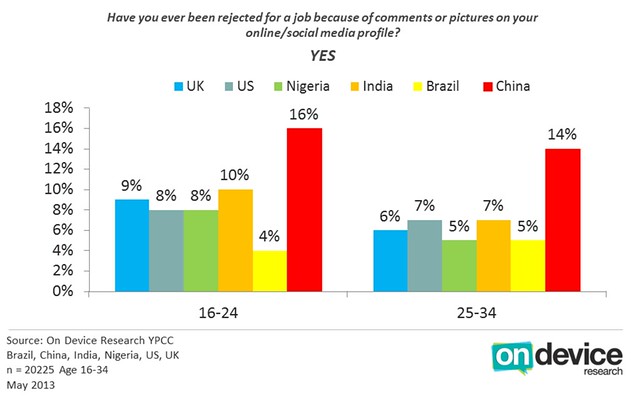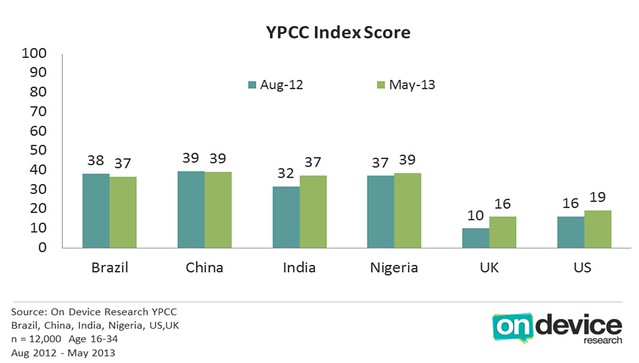We have just finished the third wave of our Young People’s Consumer Confidence (YPCC) Index, which is designed to help businesses understand what young people (16-34) think about their current and future economic and employment prospects, in both developed and growth markets.
The index which covers 6000 16-34 year olds across six countries revealed some surprising results.
Impact of social media on careers
If getting a job was not hard enough in this tough economic climate, one in ten young people have been rejected for a job because of their social media profile.

Yet worryingly the majority (two-thirds) are not concerned that their use of social media now, may harm their future career prospects and are not deterred from using it.
They are also more likely to have altered their social media profile to look good to their friends, as opposed to prospective employers.
Better education of the impact of social media is needed, to ensure young people are not making it even harder for themselves to get on the career ladder.
Consumer confidence
At the top line level consumer confidence amongst young people in growth markets are twice as high as the UK and US.
Young Chinese and Nigerian consumers have the overall highest confidence levels, indexing at 39, followed closely by Brazil (37) then India (37). In comparison, Britons index at just 16 and the US at 19.

Future employment
Confidence in growth markets is fuelled by optimism about their future employment prospects, with 88% firmly believing they will get a better education than their parent’s vs their counterparts in developed markets (64%).
They are also more confident about earning a higher salary (89%) where as young people in developed markets are less certain (60%).
Interested in carrying out market research in growth markets?
Download the full report:
Methodology
6000 demographically balanced mobile users aged 16-34 years old across China, India, Nigeria, Brazil, the US and UK completed a survey via the mobile Internet. Additional questions were asked from a larger sample size of 17,657 (aged 16-34) about social media.
